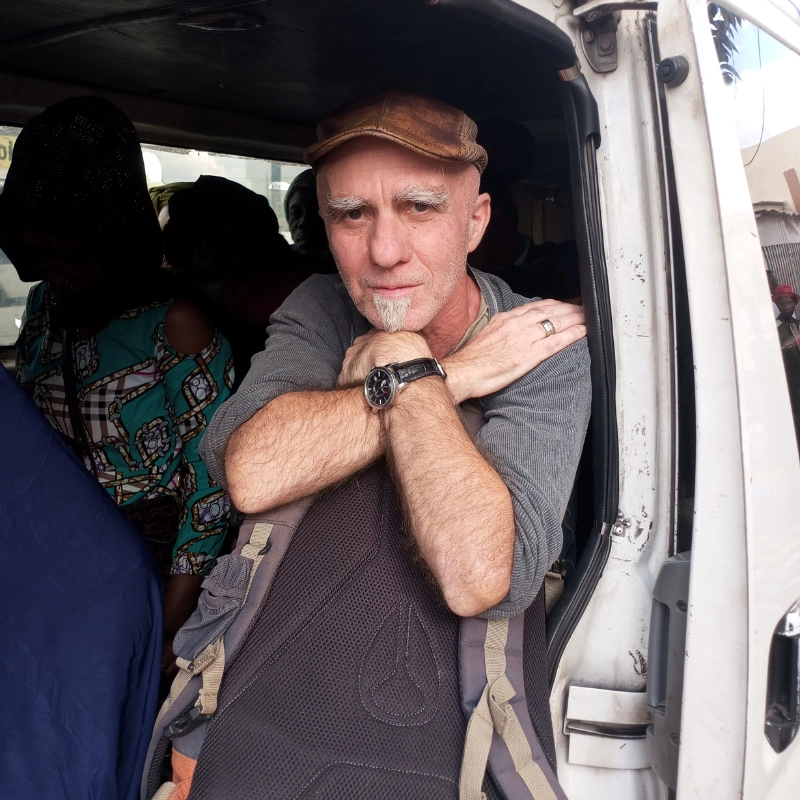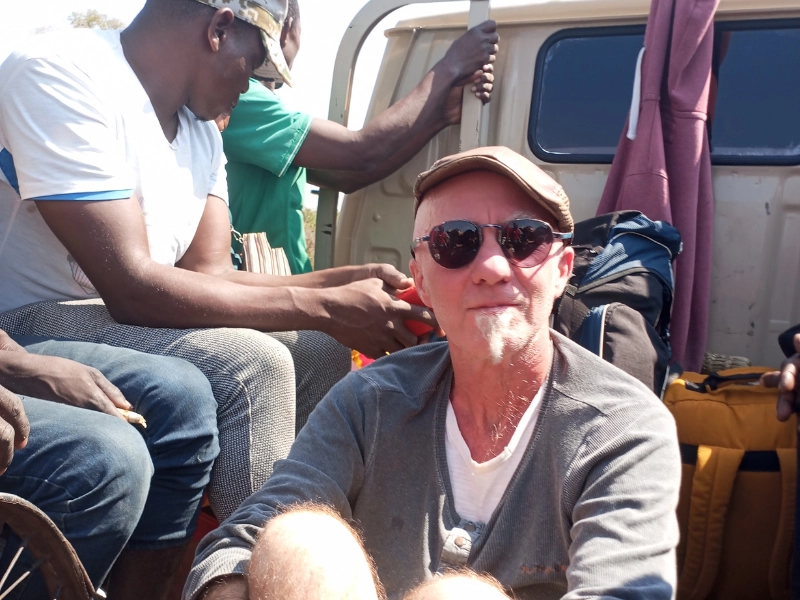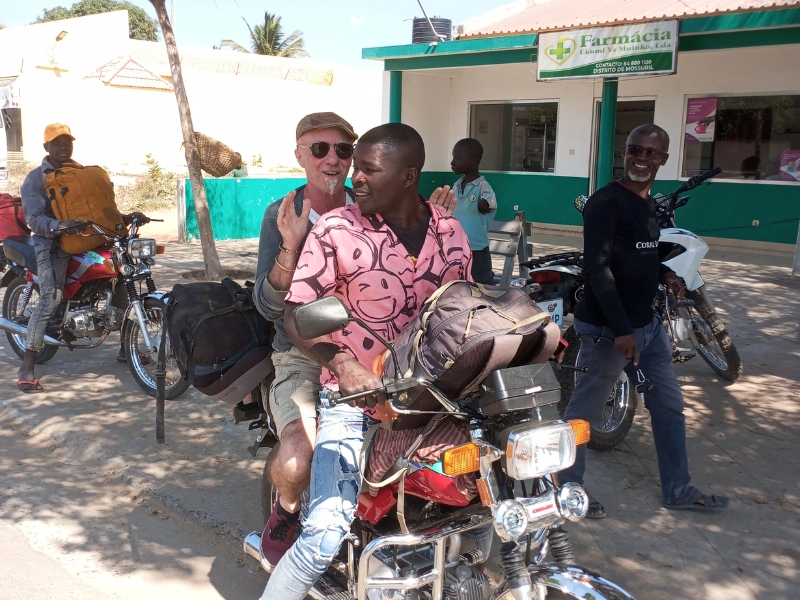A test of Mindfulness in Africa

We’re coming up to our fourth year living here in Mozambique – how time flies. But how has living in Africa for this length of time helped me as a mindfulness meditation teacher? Have there been any learnings? How have they helped me on my journey in life?
Living here presents you with many challenges. Like any place, there is no paradise on earth, despite what the tourism ads might say. We miss many things from our European background – convenience, culture, entertainment and, above all, friends and family. Africa feels far away from everything we have left behind.
Africa is a teacher
Africa is a great teacher, however, especially the people here. We recently took a long trip northward to explore some beautiful parts of Mozambique, notably the wonderful wildlife of Gorongosa National Park and the idyllic beauty of Ilha de Mozambique, a UNESCO-protected island which brings you back in time.
We did it all by public transport which meant many hours sitting cramped in a local minibus or bouncing over the potholes in a fourteen-hour bus journey. I counted nine full days of our total trip traveling in this way!

I had little time for meditation practice during these trips. But at one point as I sat for the umpteenth time under a smelly armpit, cramp in my feet from not being able to move in an overstuffed minibus, it just hit me that I was practicing in that moment of time. And that my local co-passengers were my teachers.
Most of us begin meditating by taking some time every day to sit in relative silence and to observe our mind – which is usually busy, distracted, and all over the place. That’s a big part of it, especially as a beginning meditator. But while sitting on a cushion is fine, it is our life which puts our practice to the real test. In fact, our lives can be our practice. Why separate and compartmentalise our life from our sitting practice? As my American friends say, this is where the rubber meets the road – we take the learnings of our meditation practice into our daily lives.
What Africa teaches me
Sitting on an African bus taught me:
Patience
Patience : One of the important attitudes to bring to your meditation practice is the attitude of patience. The fact that everything unfolds in its own time. Life has its own rhythm and being impatient takes us away from the present moment. As the chapa (minibus) stopped for the 560th time to pick up and cram in another passenger, I found myself letting go of frustration and just let things unfold at their own pace, not how I think how that they “should” have been.
We’re always in a hurry, especially in the western world. It reminds me of the cartoon I saw with two men on camels traveling through the desert. One turns around and says to the other…..“Stop asking me if we’re nearly there. We’re nomads for f*#@’s sake!”
As Pema Chodron writes: Patience means allowing things to unfold at their own speed rather than jumping in with your habitual response to either pain or pleasure.
Acceptance
Acceptance : Sometimes you need to practice acceptance of how things are. We sit, and our mind is crazy. We can’t stop the thoughts from coming, like a huge, tumultuous waterfall. I’ve often heard people say to me – “but I can’t meditate. My mind is too busy!” Congratulations! You have recognised that your mind is chaotic. Now let’s just work from this place with a gentle acceptance of how we are in the present moment. Sitting in an African machimbombo (bus) for a full day was painful and tiring. Stopping, starting, bouncing, bursting bladder. Another police check. Another immigration officer looking for our passports. And those afro-beats constantly pounding away on the bus video.
Instead of my mind fighting all of this, I could practice a gentle acceptance of the reality of my life at that moment. This was how it was. This was something I couldn’t control. This was my practice.
Letting Go
Letting Go: Meditation practice is about letting go of how we think it ‘should’ be. It’s about not getting attached to whatever arises in our experience. How? By simply being in the present moment and all it entails. Everything. The pleasant and the not very pleasant.
The locals on the bus were practicing all of this, perhaps without even realising it. Their resilience to get through the day with acceptance and humour was inspiring. Bumping over the potholes, they became my gurus.


